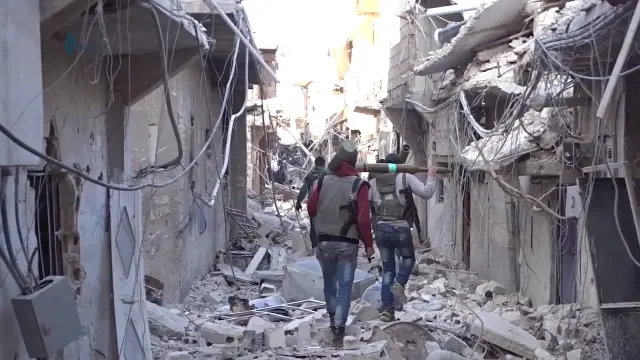Aleppo, Syria’s once-thriving economic hub, has once again fallen into turmoil as rebel forces, including Islamist groups, claim control of key districts. This latest development marks a dramatic shift in Syria’s civil war, raising questions about the future of the Assad regime and the humanitarian toll on the city’s long-suffering population.
Since the conflict erupted in 2011, Aleppo has been a microcosm of Syria’s descent into chaos. Initially swept into the wave of anti-government protests, the city quickly became a battlefield when President Bashar al-Assad’s forces launched a brutal crackdown.
In February, the United States launched airstrikes in Iraq and Syria against more than 85 targets linked to Iran’s Revolutionary Guard (IRGC) and militias it backs, reportedly killing nearly 40 people, in retaliation for a deadly attack on U.S. troops on a base in Jordan.
By 2012, Aleppo was split into government-controlled western districts and rebel-held eastern neighborhoods, a division that turned the city into a prolonged war zone.
Assad’s forces, backed by Russian airpower and Iranian militias, unleashed relentless bombardments to reclaim the city, culminating in the government’s recapture of Aleppo in late 2016.
The recapture, hailed as a major victory by the Assad regime, came at a staggering cost. Entire neighborhoods were reduced to rubble, and thousands of civilians were killed or displaced. Aleppo became emblematic of the regime’s strategy: a combination of military might, siege tactics, and negotiated evacuations. Assad’s forces imposed a fragile order in the aftermath, but the scars of war remained visible in its devastated infrastructure and fragmented communities.
Now, the city is once again at the heart of Syria’s conflict. Rebel factions, reportedly including groups linked to Islamist movements such as Hayat Tahrir al-Sham (HTS), have launched coordinated offensives. HTS, an offshoot of al-Qaeda, is one of the most powerful Islamist groups operating in Syria, controlling swathes of territory in the northwest. Other factions with varying degrees of Islamist ideology are believed to be involved, further complicating the dynamics of the conflict.
This new phase of fighting could have profound implications. For Assad, the loss of Aleppo represents not just a territorial setback but a blow to his image as the restorer of stability. For the rebels, it signals a resurgence in their ability to challenge the regime, even after years of setbacks and fragmentation. The involvement of Islamist groups raises fears of increased extremism, complicating efforts for a political resolution and potentially drawing in external powers.
For the people of Aleppo, the consequences are devastatingly familiar. Renewed violence threatens to displace thousands more, adding to Syria’s already staggering humanitarian crisis. Once again, a city that has endured years of destruction and suffering is caught in the crossfire of a war with no clear end in sight.
The rebel takeover underscores the enduring volatility of Syria’s conflict, a war that has defied all predictions of resolution. With Aleppo back in the headlines, the world is reminded that even after more than a decade of bloodshed, Syria remains a battleground of competing interests, ideological divides, and immense human suffering.
